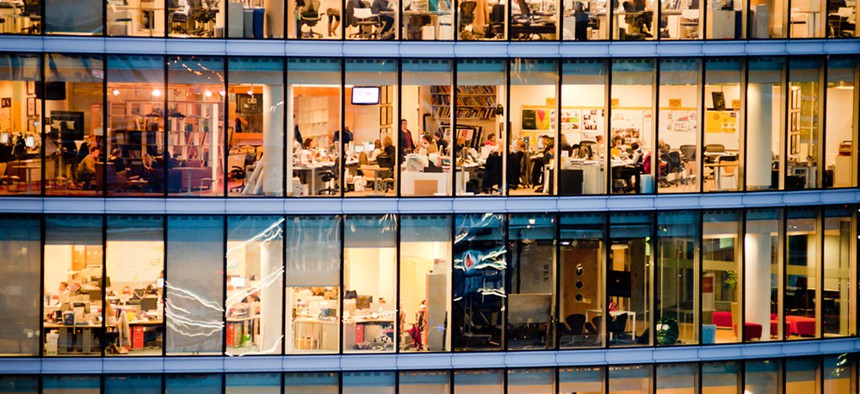
pcruciatti / Shutterstock.com
The Architectural Theory That’s Killing Personal Space at Work
Communal space at work can help spark creativity, but it has a cost.
The mass adoption of the open office killed off walls for most workers, and even the cubicle. Now, its evolution is shrinking employees’ desks. One reason, unsurprisingly, is to save on rent in expensive markets by packing more people into smaller spaces, according to The New York Times (paywall).
But personal space is being further compressed by a combination of current architectural and social science theory. More office space is being given over to communal areas, conference rooms, and shared work areas. It’s based on the idea that less individual and more common space leads to serendipitous interaction and increased creativity.
“The balance between individual spaces and community spaces has changed drastically,” Knoll SVP David Bright told The New York Times (paywall), “with shared and community spaces taking up a greater proportion of space than they once did.”
Space per worker is steadily dropping (pdf), with even less of it set aside for individual people.

There’s solid research behind the idea. Most famously, MIT professor Thomas Allen’s work has emphasized how important face-to-face interaction is for creativity, and found that people rarely even speak to coworkers who sit as little as 60 feet away from them in a traditional office.
How this body of research plays out in real offices varies. At one extreme, Las Vegas e-commerce company Zappos, decided to close off most of the entrances to its main offices to create more chance collisions. In the more expansive real estate permitted at suburban tech campuses, this can take the form of big cafeterias or many quiet corners to retreat to. But in tight urban markets, extra common space isn’t likely to be all that free or quiet, and comes at the expense of already compacted personal space.
Common complaints about open offices, like noise, general distraction, and increased illness will only be exacerbated by a desk that doesn’t offer room for much more than a laptop and a phone. Serendipity is nice, but a bit of privacy in the place you spend 10 hours a day has value too.






